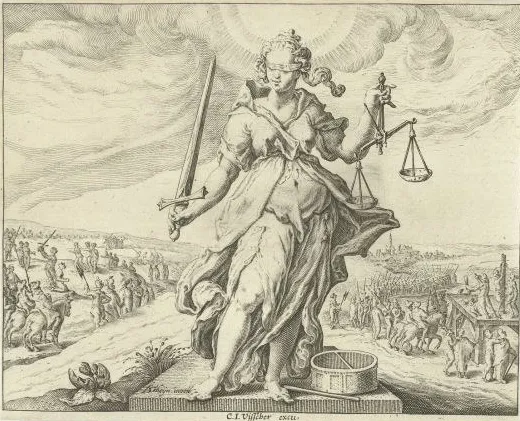How money and status helped you in the Prison Gate

How money, status and power led to class justice - including in the Prison Gate
In the Netherlands, everyone has equal rights. At least, that is what is written in the Constitution. But practice is intractable; a rich person can hire a good lawyer more easily, and thus has a greater chance of a smaller penalty or of avoiding punishment altogether. Even when they commit the same offence or crime, people with jobs are sentenced to prison less often than the unemployed. This sounds very much like class justice, one might say – medieval conditions!
The ‘common man’ was exposed to vermin and painful infections
Indeed, the middle ages and class justice went hand in hand. Class justice used to be very common. In the past, the principle of equality such as that enshrined in our modern constitution simply did not exist. Drunkards, beggars and rioters had to await punishment in cold, dark cells. They were given bread and water, no more. The same was true of those accused of murder, fraud and rape. Iron shackles caused painful wounds; faeces, vermin and rotting straw in the cells meant there was a high chance of infection. It often happened that by spending several weeks incarcerated, rioters literally cooled off.
'Due to their dreadful time in gaol, criminals would sometimes confess even before they had been interrogated.'

‘Respectable folk’ were frequently better off
Very different rules applied to city councillors and members of the nobility who had been arrested. Often political prisoners, they were imprisoned in luxurious cells: the Knight’s Chamber, the Women’s Chamber or the IJzerkamer (Iron Chamber). Abraham De Wicquefort even had his own cell built for him. Distinguished folk could order meals from the warder, upon payment. The warder would also give them large baskets of peat for the hearth-fire and candles for lighting. Sometimes they were released from prison on bail or on their word of honour, and only had to appear during their trial. This also had advantages for the warder, as it meant the cells remained available for other prisoners.
One died at the stake, the other walked free, thanks to his wealthy father
People of low birth often received harsh treatment or were sentenced to death, whereas aristocrats who had committed the same crimes went scot-free. One such example is that of the maidservant Heylkyn and her master, Jacob van Groesbeeck, in 1445. Heylkyn was arrested on suspicion of having tried to poison Jacob’s wife. When she was tortured during her interrogation, she confessed that her master knew of the plan. The latter managed to escape, though, and took to his heels. By paying a hefty fine, Jacob’s father later managed to obtain a pardon for him. Heylkyn, however, ended her life at the stake. Although stark miscarriages of justice such as these no longer occur, thanks to our modern constitutional state, recent headlines on alleged incidences of class justice clearly show that the rule of law may not apply to everyone all the time.

